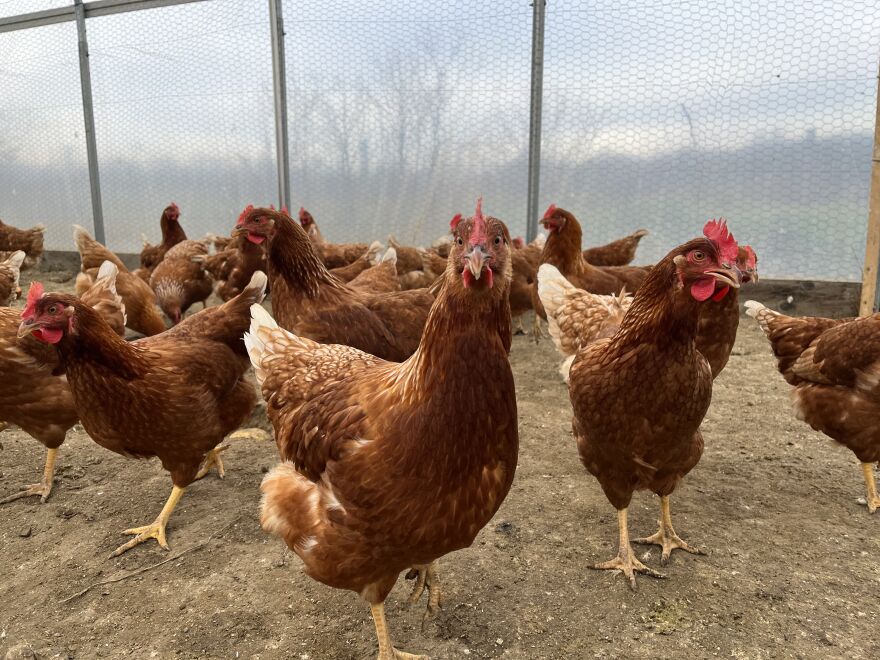A new bird flu is tearing through wild and domestic bird populations in the United States. The Pennsylvania Department of Agriculture is banning poultry and egg displays from county and local fairs through June 16 in an attempt to prevent an outbreak in the state.
Bird flu cases have been confirmed among backyard and commercial flocks in 26 states.

“Pennsylvania’s agricultural fairs are important educational events for our youth,” Agriculture Secretary Russell Redding said. “But the risk to our poultry farmers and our economy outweighs the benefit of displaying poultry at fairs when avian influenza is an imminent threat. The very real experience of weighing risks against benefits is also a tremendously important part of an agricultural education.”
Pennsylvania’s poultry industry is worth $7.1 billion.
The ban prohibits the display of poultry and poultry products, including eggs, feathers “and other parts and items made of these parts,” the department said in a statement.
Pennsylvania has not confirmed any avian flu cases in commercial or backyard poultry flocks, but most of the states surrounding states, including Ohio, New York and Maryland, have reported infected flocks.
“Pennsylvania has not had a confirmed case of Highly Pathogenic Avian Influenza in commercial or backyard poultry since an outbreak in 1983-’84,” the department said in a statement.
But the virus has been detected in at least one wild bird in Pennsylvania.
The state announced late last month that a bald eagle found dead in Chester County tested positive for the virus. Tests results have not yet been disclosed for five wild hooded mergansers recovered from Kahle Lake on the border of Clarion and Venango counties.
Wild birds can be infected with the virus and show no signs of illness according to the U.S. Department of Agriculture. They have been found to carry the disease to new areas when migrating, potentially exposing domestic poultry. Pennsylvania’s Department of Agriculture advised owners of backyard chickens to bring their flocks indoors to protect them from coming into contact with wild birds or their droppings.
This particular bird flu strain, HPAI H5N1, was first identified in North America in December. Since then, more than 20 million poultry birds have died, either from being infected with the virus or killed to prevent its spread. Domestic poultry, including chickens, ducks, geese, turkeys, guinea fowl, quail, pheasants, emus and ostriches, are most susceptible to avian influenza
Pennsylvania’s poultry exhibition ban applies to the 108 county and local fairs that receive state funding under the Pennsylvania Agricultural Fair Act. State officials noted the ban could be rescinded earlier than June 16. Most fairs happen later in the summer.
According to the U.S. Centers for Disease Control and Prevention, avian influenza is not an immediate public health concern. No human cases of avian influenza viruses have been detected in the U.S.
But Pennsylvania Agriculture officials warn that humans should do their part to prevent the spread of this virus.
“Anyone visiting a farm should be aware that your vehicles and shoes may carry the virus from other places you have walked,” the department noted. “Clean them thoroughly and stay away from poultry barns unless you have to be there.”






